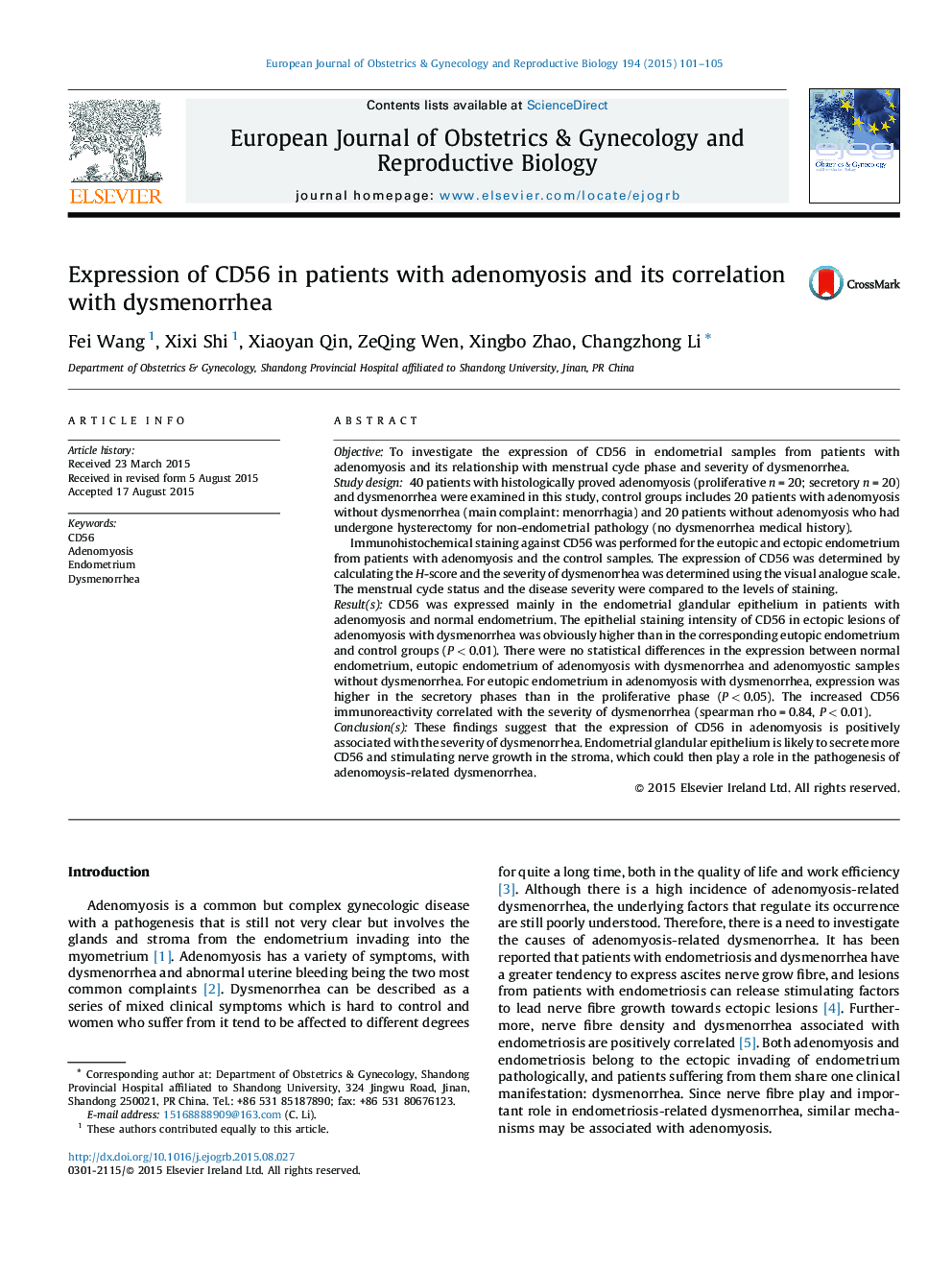| کد مقاله | کد نشریه | سال انتشار | مقاله انگلیسی | نسخه تمام متن |
|---|---|---|---|---|
| 6173068 | 1599787 | 2015 | 5 صفحه PDF | دانلود رایگان |

ObjectiveTo investigate the expression of CD56 in endometrial samples from patients with adenomyosis and its relationship with menstrual cycle phase and severity of dysmenorrhea.Study design40 patients with histologically proved adenomyosis (proliferative n = 20; secretory n = 20) and dysmenorrhea were examined in this study, control groups includes 20 patients with adenomyosis without dysmenorrhea (main complaint: menorrhagia) and 20 patients without adenomyosis who had undergone hysterectomy for non-endometrial pathology (no dysmenorrhea medical history).Immunohistochemical staining against CD56 was performed for the eutopic and ectopic endometrium from patients with adenomyosis and the control samples. The expression of CD56 was determined by calculating the H-score and the severity of dysmenorrhea was determined using the visual analogue scale. The menstrual cycle status and the disease severity were compared to the levels of staining.Result(s)CD56 was expressed mainly in the endometrial glandular epithelium in patients with adenomyosis and normal endometrium. The epithelial staining intensity of CD56 in ectopic lesions of adenomyosis with dysmenorrhea was obviously higher than in the corresponding eutopic endometrium and control groups (P < 0.01). There were no statistical differences in the expression between normal endometrium, eutopic endometrium of adenomyosis with dysmenorrhea and adenomyostic samples without dysmenorrhea. For eutopic endometrium in adenomyosis with dysmenorrhea, expression was higher in the secretory phases than in the proliferative phase (P < 0.05). The increased CD56 immunoreactivity correlated with the severity of dysmenorrhea (spearman rho = 0.84, P < 0.01).Conclusion(s)These findings suggest that the expression of CD56 in adenomyosis is positively associated with the severity of dysmenorrhea. Endometrial glandular epithelium is likely to secrete more CD56 and stimulating nerve growth in the stroma, which could then play a role in the pathogenesis of adenomoysis-related dysmenorrhea.
Journal: European Journal of Obstetrics & Gynecology and Reproductive Biology - Volume 194, November 2015, Pages 101-105